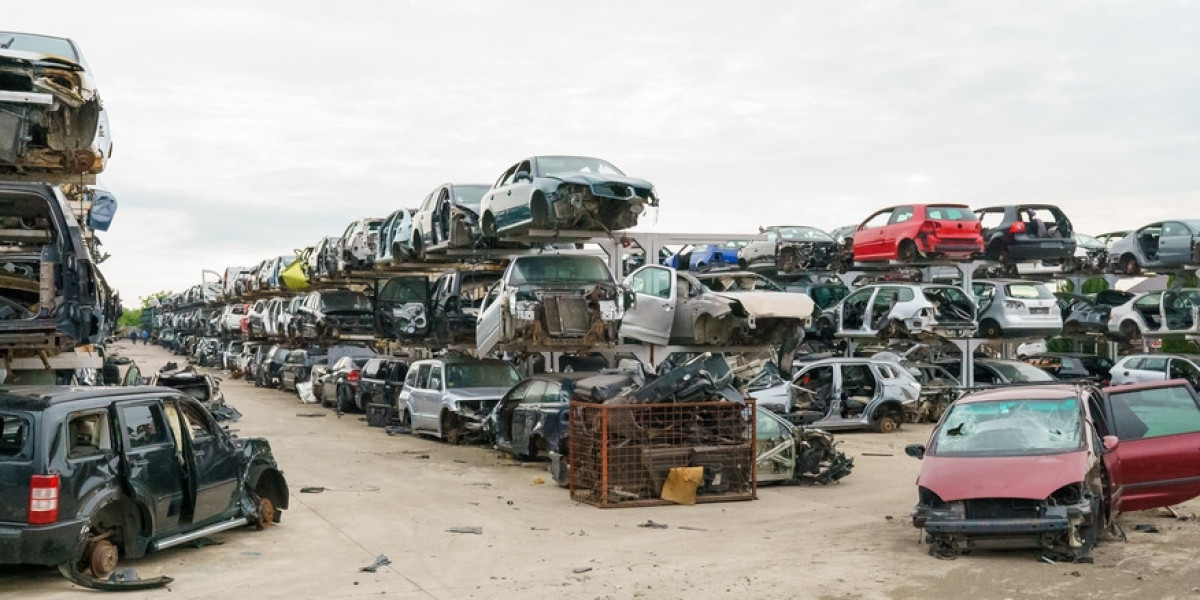The rise of electric vehicles (EVs) has changed how we think about transportation. They’re cleaner, quieter, and far more efficient than traditional cars. But as thousands of EVs hit the roads, a new question is emerging: What happens when their batteries wear out?
For scrap yards and old car removal services, this question isn’t a problem but it’s a golden opportunity. The growing wave of used EV batteries is opening doors for innovation, recycling, and profit. Especially in cities like Sydney, where car removal Sydney services are already thriving, the shift toward electric mobility is transforming the way the auto recycling industry works.
Let’s explore how turning old EV batteries into new business opportunities is reshaping the future of scrap yards.
The EV Revolution: A New Kind of Scrap
Electric vehicles don’t have engines full of oil and mechanical parts like petrol cars. Instead, their power comes from large lithium-ion batteries. These batteries usually last 8–15 years, depending on use. But once their capacity drops below 70–80%, they’re no longer efficient for EV driving.
However, “worn out” doesn’t mean “worthless.” These batteries still hold plenty of stored energy and valuable materials inside them. For scrap yards, that means every old EV battery is like a hidden treasure chest filled with metals such as lithium, nickel, and cobalt.
When these metals are recovered and reused, they can help make new batteries, reducing mining and cutting down environmental impact. That’s where smart scrap yards come into play.
How Scrap Yards Can Benefit
Traditional scrap yards have always focused on metal recovery like iron, steel, copper, and aluminum. But EV batteries bring a whole new dimension to the business.
Recycling Partnerships – Scrap yards can partner with battery recycling companies that specialize in safely dismantling and processing lithium-ion cells.
Energy Storage Resale – Some used EV batteries can be repurposed for home or commercial energy storage systems. This second-life application offers a high resale value.
Eco-Friendly Image – By handling batteries responsibly, scrap yards can market themselves as green businesses. This builds trust among customers and attracts environmentally conscious clients.
Government Incentives – Many local councils and environmental programs in Australia offer grants or benefits to recycling facilities that process EV components responsibly.
With EVs becoming more common every year, old car removal businesses can grow beyond traditional scrap to become key players in the clean energy transition.
The Recycling Process: From Battery to Resource
Here’s how the recycling process works in simple terms:
Collection: When an EV is sold for scrap, removal services collect it and deliver it to a yard.
Assessment: Specialists inspect the battery to check if it’s fit for reuse or needs to be dismantled.
Disassembly: Technicians safely separate the battery modules, ensuring no leakage or short circuits.
Material Recovery: Metals such as lithium, cobalt, and nickel are extracted and refined for reuse in manufacturing.
Reuse or Resale: Functional cells may be resold for solar storage systems, backup power solutions, or even smaller electric devices.
This recycling cycle creates a sustainable loop, one that’s good for the planet, profitable for scrap yards, and efficient for the energy market.
The Environmental Impact
Recycling old EV batteries is not just about profit; it’s also about responsibility. Mining for fresh metals often damages ecosystems and consumes massive amounts of energy. By reusing metals from old batteries, scrap yards help reduce the need for new mining and lower carbon emissions.
For Australia, where EV adoption is accelerating, this effort supports the national goal of achieving net-zero emissions by 2050. Every battery recycled is a step closer to a cleaner, more sustainable future.
Moreover, responsible car removal Sydney services ensure that harmful materials like lithium salts and heavy metals don't end up in landfills or waterways. Instead, they’re redirected into controlled recycling systems.
Opportunities for Old Car Removal Businesses
Companies offering old car removal services are uniquely positioned to benefit from this change. Here’s how they can adapt:
Expand Collection Services: Offer pickup for both old petrol cars and EVs with depleted batteries.
Collaborate with Recyclers: Build networks with licensed facilities that process EV components.
Educate Customers: Let people know that recycling old EVs is both profitable and eco-friendly.
Offer Instant Payments: Continue providing quick payouts for old vehicles to maintain customer trust and convenience.
In Sydney’s growing EV market, early adopters of these practices can lead the industry in sustainable auto recycling.
Challenges and the Way Forward
Of course, the shift isn’t without challenges. Handling high-voltage batteries requires safety training, new tools, and careful logistics. But the investment is worth it. As recycling technology improves, costs will drop, and opportunities will grow.
Governments are also working on stronger recycling policies and standards to ensure that every used EV battery is collected, processed, and reused safely.
Conclusion
The EV revolution isn’t just transforming roads but it’s reshaping the recycling industry too. Old car batteries, once seen as waste, are now becoming valuable resources.
For scrap yards and car removal Sydney businesses, this is a chance to move from simple disposal to smart recovery. By embracing battery recycling, they can earn more, protect the environment, and become leaders in the green economy.
In the end, the cars of the future won’t just run cleaner, they’ll help build a cleaner recycling industry too. Turning old energy into new opportunity is the next great journey for Australia’s auto recyclers.








